National Unity : Against All Odds
- Par Richard Kometa
- 06 nov. 2024 12:14
- 0 Likes
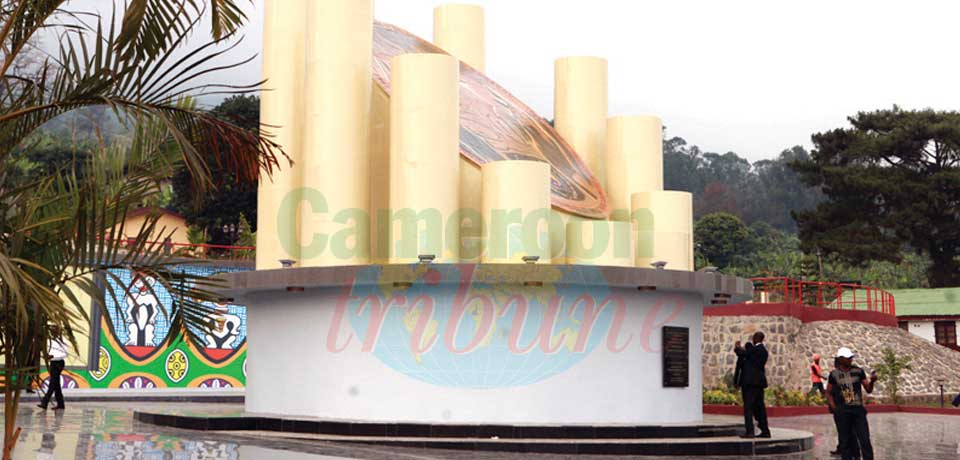
Several upheavals have threatened the country, but President Paul has never wavered in defending the polity.
Promoting national unity has over the years proven to be challenging. With the multi-ethnic and linguistic diversity in Cameroon, people have at times given priority to their local and individual interests rather than national values. At certain moments of national life under the New Deal Regime of President Paul Biya, many took the notions of peace, unity and living together as mere slogans intended to serve political egos. Unfortunately, such a mind-set has gradually given way to taking such ideals for granted thereby jeopardising national cohesion.
It first became obvious with the return of multiparty politics in the country in the 1990s. Some saw it as a leeway to disrupt the establishment, maim and destroy all those who held contrary views. Businesses were targeted for arson and other vile practices that went against building a harmonious society. No sooner had the heat subsided that the border conflict over the Bakassi Peninsula erupted with neighbouring Nigeria coveting the oil-rich area. It dragged on with its toll on human life and property. Until the International Court of Justice at The Hague awarded the disputed territory to Cameroon in 2002. But was not so evident that the issue could be laid to rest so easily. Then came the Boko Haram extremist sect attacks in parts of the Far-North Region and the separatist threats in the South West and North West regions which have in no small way undermined National Unity in Cameroon. These are crises that have largely compounded the already disturbing economic situation that pulled down the upward-swing of the country that the accession to power by Mr Biya heralded on 6 November, 1982. There was equally the sad aborted coup of April 1984. It was an early dark spot and stone in the shoe of the New Deal government.
Faithfull to the principle of a people-centred approach to the daily challenges to national unity, President Paul Biya has adopted various strategies to instil cohesion and bind the different parts of the country into a unified whole. Ensuring a political party base capable of transmitting governance rules which could recruit the ruling elite came handy with the creation of the Cameroon People’s Democratic Movement (CPDM) that replaced the Cameroonian Nation Union of his predecessor in 1985 during the party congress in Bamenda. Although some of the party followers have at time fired in their own camp through unpatriotic habits, the truth is that the CPDM has remained the life-wire of the New Deal with the party hierarchy supporting the national policy while weeding the bad grains as the circumstances present themselves. This is where the need for strong State institutions under the New Deal has been evident, even if some people try to deny its veracity. They only need to cast an eye on the seemingly untouchables who have ended behind bars to agree that the Head of State has over the years placed a price on keeping aside those who attempt to subvert national interests by either mismanaging State property ...
Cet article complet est réservé aux abonnés
Déjà abonné ? Identifiez-vous >
Accédez en illimité à Cameroon Tribune Digital à partir de 26250 FCFA
Je M'abonne1 minute suffit pour vous abonner à Cameroon Tribune Digital !
- Votre numéro spécial cameroon-tribune en version numérique
- Des encarts
- Des appels d'offres exclusives
- D'avant-première (accès 24h avant la publication)
- Des éditions consultables sur tous supports (smartphone, tablettes, PC)







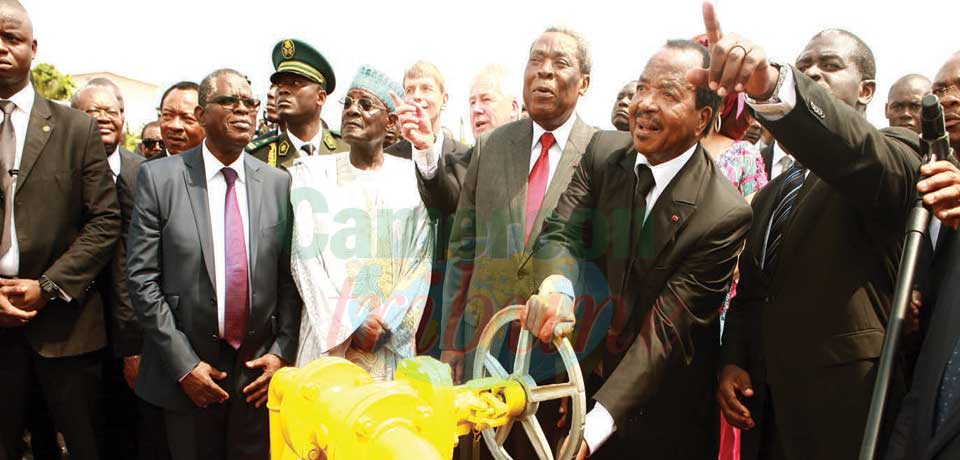
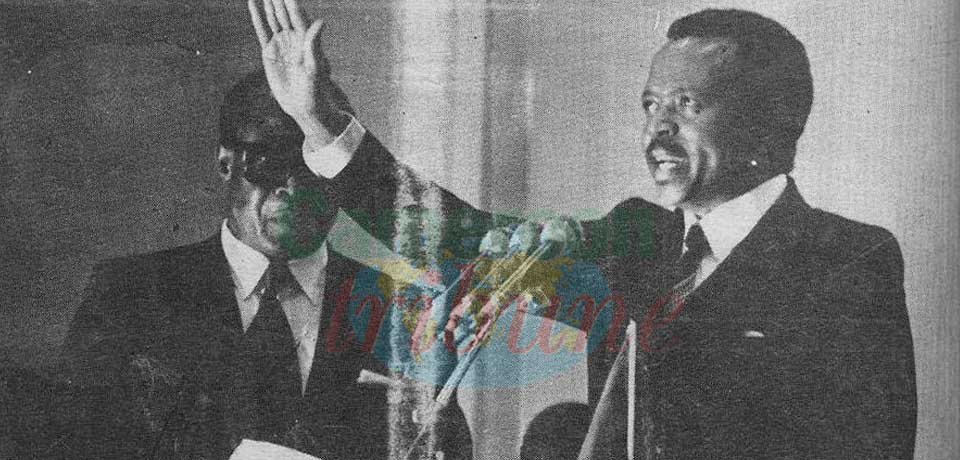
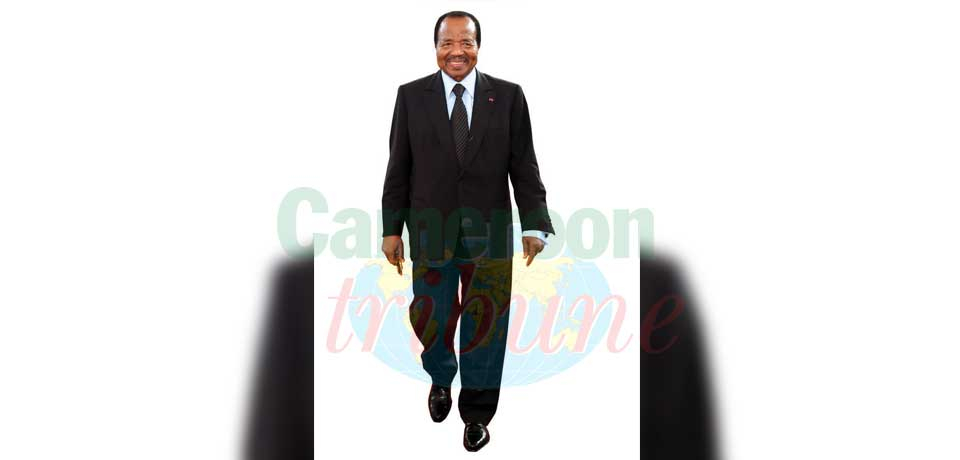
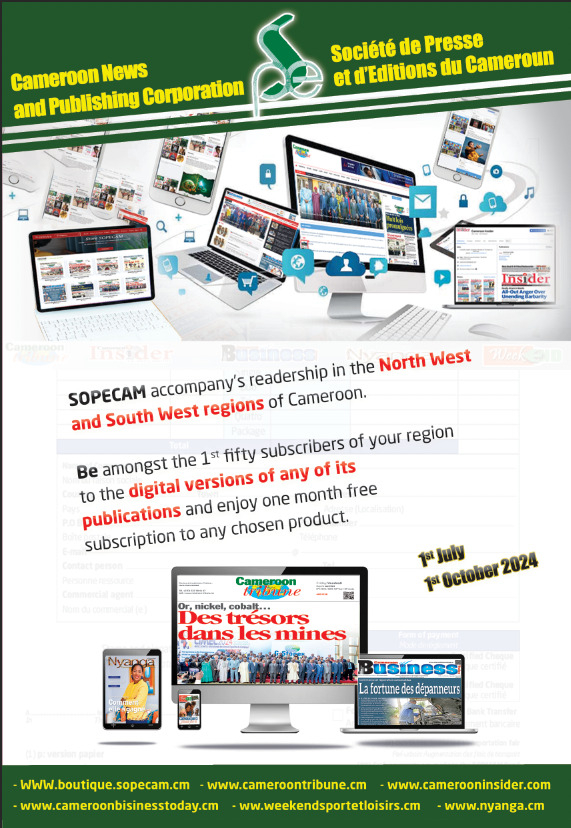

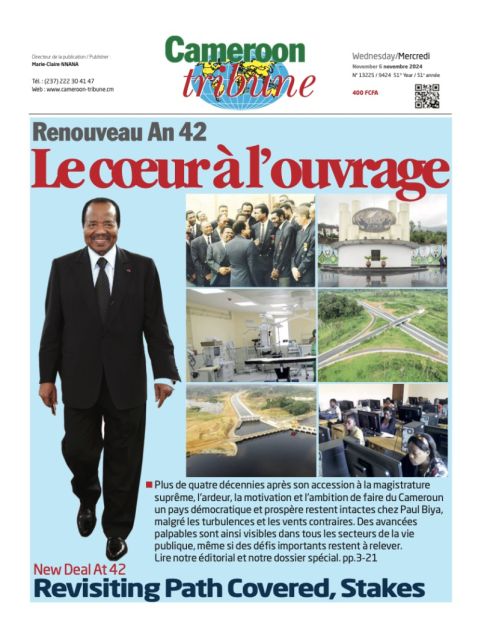




Commentaires